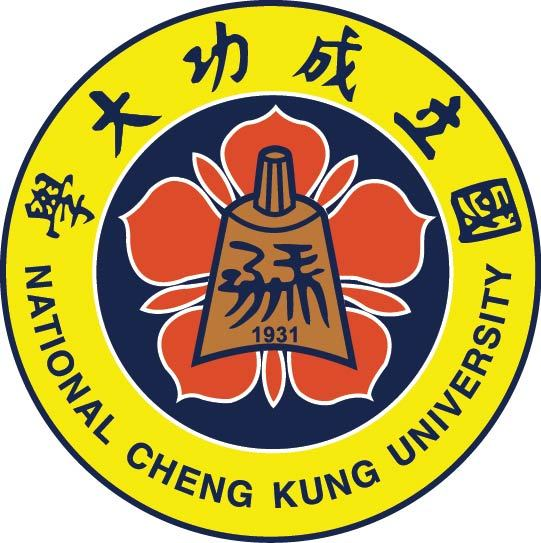Laboratory for Artificial Intelligence and Multiscale Modeling
Research Field
Professor Chi-Hua Yu is a prominent academic at National Cheng Kung University, renowned for his pioneering work in computational mechanics, fracture mechanics, and artificial intelligence. His research involves innovative applications of deep learning in materials science, focusing on predicting stress fields in composites, analyzing fracture patterns in solids, and designing new materials and proteins using advanced computational methods. His work has significantly impacted the field, as evidenced by his substantial number of citations. Professor Yu's contributions are critical in advancing the understanding and development of new technologies in materials science and engineering.
The Laboratory for Artificial Intelligence and Multiscale Modeling (LAiMM) at National Cheng Kung University focuses on integrating AI techniques with multiscale modeling to advance various engineering fields. Their research encompasses developing new methodologies and applications to address complex engineering problems through a combination of artificial intelligence and computational modeling.
The Laboratory for Artificial Intelligence and Multiscale Modeling (LAiMM) at National Cheng Kung University focuses on several cutting-edge research topics that combine AI with multiscale modeling to tackle complex engineering and scientific problems. Key research areas include:
Soft Matter Biophysics: This involves understanding and predicting the behavior of soft and hierarchical materials, which are crucial for applications in energy storage and biomedical fields. The research integrates multiscale computational models with AI to enhance the understanding of material properties and design advanced materials.
Mathematical Theory and Computational Methods: Development of theories and computational strategies for coarse-graining and model reduction, coupling heterogeneous physical models across scales, and creating data-driven multiscale models. This includes using machine learning to improve the accuracy and efficiency of multiscale simulations.
Biomedical Engineering Applications: AI-driven multiscale modeling is applied to biomedical fields, such as simulating the mechanical properties of biological tissues and understanding disease mechanics. This includes collaborations for interdisciplinary research on bioinspired and living systems.
Advanced Materials Design: Integration of AI in materials modeling to discover and design new materials with desirable properties. This involves using machine learning to predict material behavior and optimize material properties for various engineering applications.
Multiphysics Coupled Deformations: Study of multifunctional materials and stimuli-responsive materials through coupled multiphysics models, which combine mechanical, thermal, and other physical phenomena across different scales.
These research topics aim to bridge the gap between theoretical models, computational simulations, and practical applications, fostering collaborations across disciplines to address significant societal challenges.
2023 Young Scholar of Mechanics Award CTAM 2023, Yunlin, Taiwan (ROC)
2023 Meritorious plan, Moe Teaching Practice Research Program, Ministry of Education, Taiwan (ROC)
2017-2018 MOST Excellent Research Award (千里馬)
2014-2015 STAM Annual PhD Dissertation Award
2012-2013 CAE Award
2011 2nd Prize Award of academic competition STAM 2011, Tainan, Taiwan (ROC)
2010 Awarded of CAE enthusiasm and outstanding performance in public service
2009 Awarded of CAE enthusiasm and outstanding performance in public service
2007 Award of Excellent Science Project excellent achievement, CYCU
Bubble Scattering Effect for High Intensity Focused Ultrasound
2007 Scholarship of Ming-Men first grade, CYCU
2006 Confidential Award, Dept. of Civil Engineering, CYCU
2006 Confidential Award, Dept. of Civil Engineering, CYCU
Assistant Professor 2020/08-2024/01
Advanced Materials and Solid Mechanics Division, Department of Science Engineering, NCKU
Postdoctoral Associate 2018/10-2020/7
MIT, Laboratory for Atomistic and Molecular Mechanics
Senior RD Engineer, 2017/8 –2018/9
CoreTech Corp. (Moldex3D), RD5
Post-Doctoral Researcher (RDSS), 2014/7 –2017/7
Computer-Aided Engineering Division, Department of Civil Engineering, NTU
Research Assistant, 07/2009 –04/ 2014
Computer-Aided Engineering Division, Department of Civil Engineering, NTU
Visiting Scholar (US Air Force Grant), 09/2010-02/2011
Department of Material Science and Engineering, University of Tennessee, Knoxville
Teaching Assistant, 2008 –2010
Course: Symbolic Computation in Engineering Mathematics
Teaching Assistant, 2011 – 2017
Course: Finite Element Method
